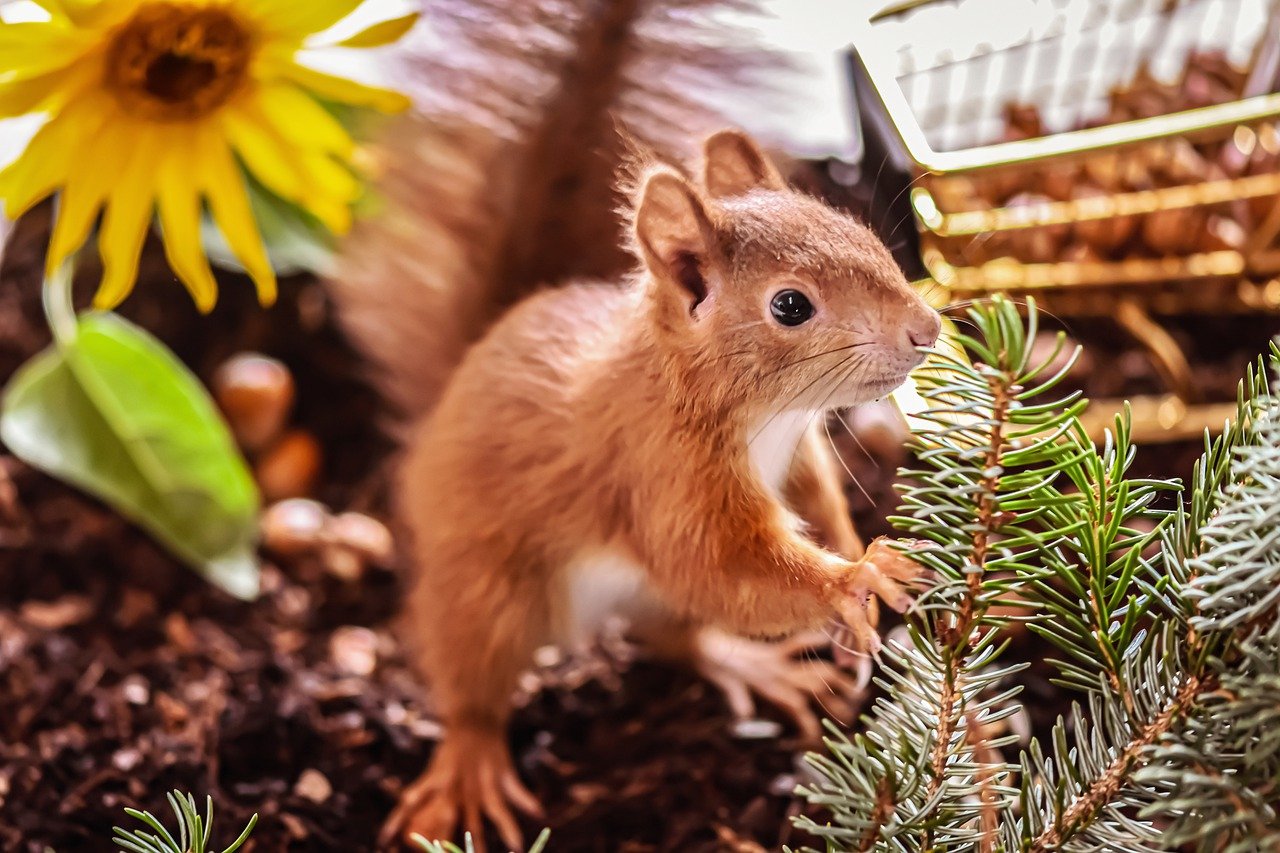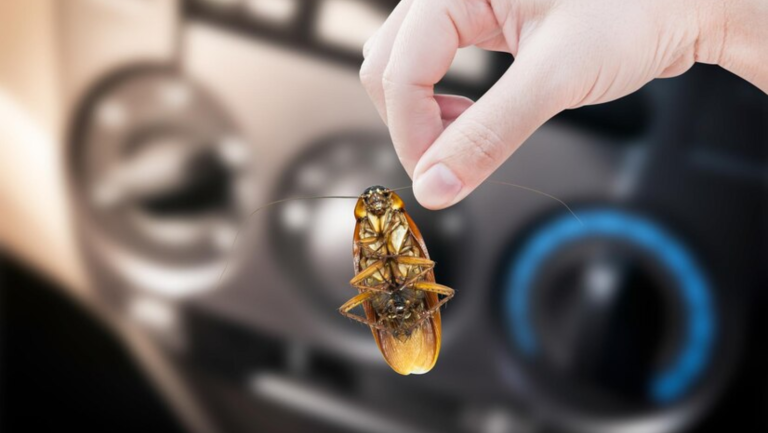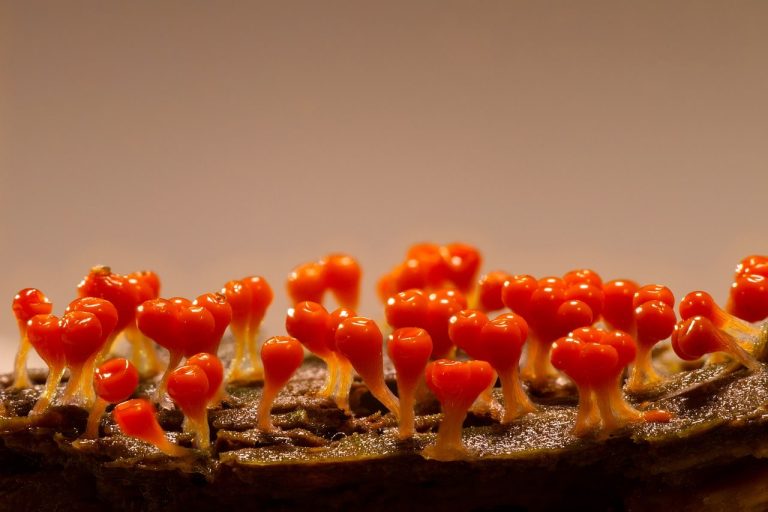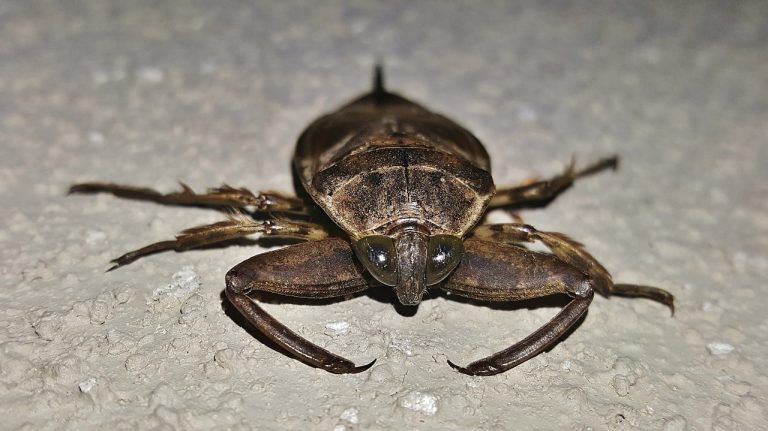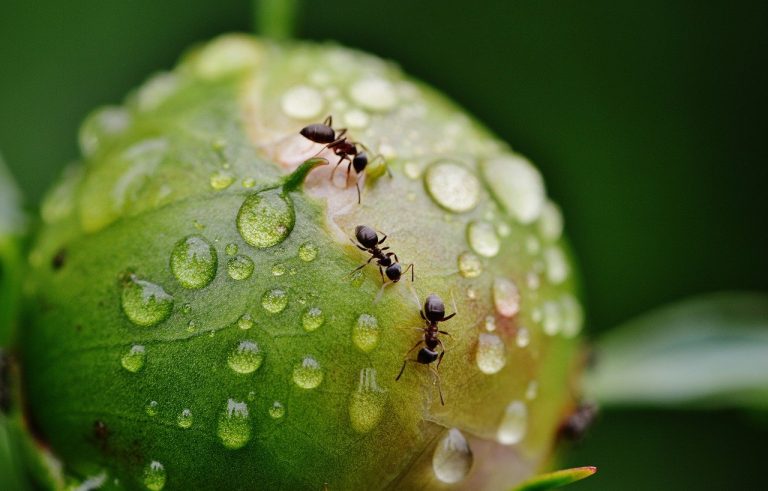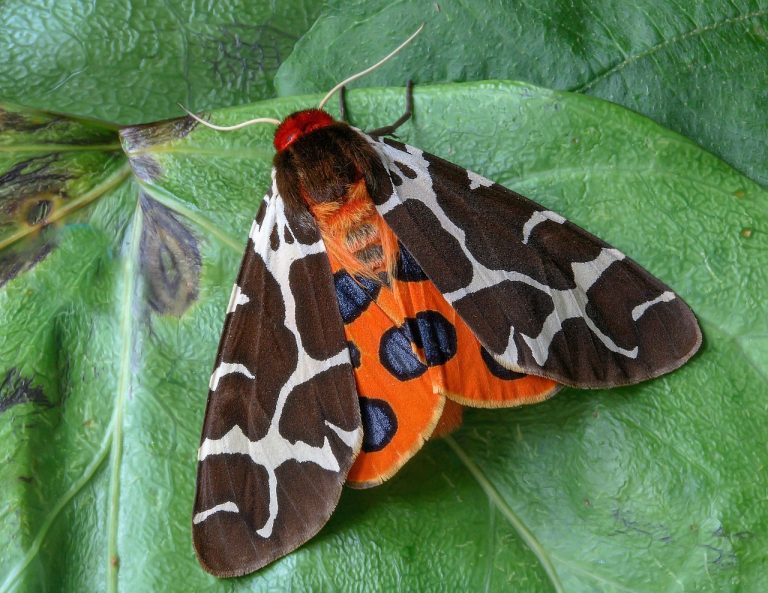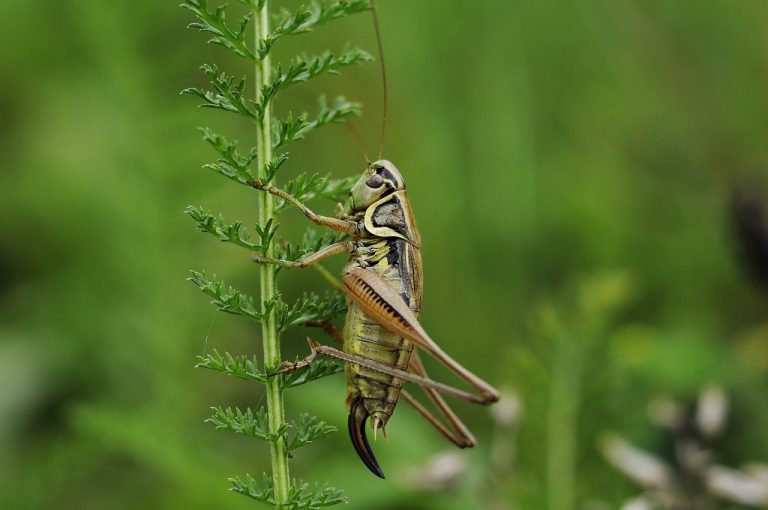How To Get Rid Of Rodents? Natural, Herbal, and Chemical Treatment
Rodents are the mammals of order ‘ Rodentia’, characterized by a single pair of continuously growing incisors in each of the upper and lower jaws. Around 40% of all mammal species are rodents. Except, Antarctica, they are found in vast numbers over the world.
Rodents are widely used as a laboratory test subjects for various studies because of their advanced cognitive abilities and similar thought-process as that of human beings. Some species like brown rats, black rats, and house mice are serious pests as they eat and spoil food stored by humans and spread diseases.
The most commonly observed types of rodents are –
- House Mouse – House mice are the number one rodent species in the world, found everywhere. They have a pointed nose, large ears, and short hair. Their feet are broad and hairless and the tail is very scaly. Since they are extremely near-sighted, they always remain close to the wall.
They are highly active and are considered great climbers that climb up the walls, pipes, wires and can jump a foot in height. They can even land safely on the floor from a height of 8 feet!
They locate themselves in the dark, secluded spaces and build a nest with the available material in a house.
- Norway Rat – These are mostly big. Brown or gray color with bi-colored tails, tiny ears, and small eyes. Their large teeth keep growing to control which they chew hard thing which include sides of houses too.
They can compress their bodies to sneak into the tiniest of spaces. They eat anything coming their way, even the food containers too, so, one needs to keep thinking where to store food.
They like to dig deep burrows to find themselves at home, where they give birth and raise their young.
- Roof Rat – As the name suggests, roof rats are good climbers. They are brown or black with an almost white stomach. They prefer to be high up and can climb trees. They use their paws and teeth to make their way into the attics and spaces between the walls.
They can eat just about anything they get. Eat a lot of food at once and rest. Thereafter, they visit the same place where they got food earlier.
- Moles – Moles are of different sizes and colors and they have developed a respiratory system that allows them to breathe underground. They dig burrows underground or hill of dirt near the surface.
Their vision is very poor but their sense of smell is great. They chew the roots of the plant leaving the upper part as it is on the ground. - Voles – Voles, too, are underground burrow animals that eat the roots of the trees. They remain active throughout the year. They have a very short, stout body, a hairy tail, rounded head, and small ears. They are also called as ‘field mice’.
They are mostly active outdoors and underground but in search of food they can turn up inside the house.
How to Get Rid of Indoor Rodents?
As the winter reaches us, so, do the rodents. They always try to find a warm and cozy shelter where they can get food too.
What would be the right place for them other than warm houses, then?
Once you have a rodent infestation in your house, you are going to experience a lot of horrible scenarios like scattering of food, chewed food boxes or containers, gnawed wires, and what not.
The most dangerous infestation in the home is rodent infestation because it can create havoc in your life. Moreover, they carry very serious diseases to make the situation worse. One should never let the infestation grow and usually getting the help of professionals is the wise thing concerned with a rodent infestation.
Natural Home Remedies to Get Rid of Indoor Rodents
- Peppermint Oil – Keep peppermint dipped cotton balls at several small openings to keep home rats away. Though human beings find peppermint smell refreshing, rats hate the smell of peppermint.
- Cocoa Powder and Plaster of Paris – Mix 1 tablespoon of cocoa powder with plaster of Paris and sprinkle it around the trail of rats and mice.
Lured by cocoa powder, they eat this mixture and get dehydrated and suffocated. They will rush away outside the home and die.
- Pepper Flakes – Sprinkle hot pepper powder along the entry and doorways and corners of the home.
This will keep the rats and mice away.
- Onions – Place onions near the small opening and replace them every alternate day to get more effectiveness. The pungent smell of onion will keep the rats away from your home.
- Garlic – Mix chopped garlic with water and sprinkle it. Placing garlic cloves on the trail of the rats will drive them away from your house because of the strong smell.
- Potato Powder – Potato powder works on the intestine of the rice and mice by swelling up after they eat it and eventually they get killed.
Sprinkle the instant potato powder as bait to rodents for eradicating them.
- Cloves – Wrap cloves in muslin cloth and place near rat holes. The strong smell of clove will help you to get rid of rats and mice with this simple method.
- Ammonia Spray – Spray easy-to-use ammonia on cotton spray balls and keep them near all entry points of rats and mice. The smell of ammonia suffocates them and they will keep away from your house.
- Bay Leaves – Place bay leaves at the corners of your home. Rats think of it is a food and eat it. After eating they get choked and substantially die.
- Crevice Control – Blocking even the smallest crevices will lead to a lack of space for mice to hide. They can adjust even in a crack of 1 inch.
So, it is the best way to ensure every nook and corner is sealed properly.
- Rat Traps – This is an age-old bait and trap method to catch the rats and mice. Lead their trail outside the house placing baits on it. Once they start eating bait in the trap, the door rushes down to close.
This is a very effective method to eliminate the rats and mice from home.
- Clear the Clutter – Insects and pests get attracted to open food spoilage or area with dirt and dust. If the area is untidy, especially laden with waste boxes and papers, rats are bound to be making their way. More tidy places will keep them away.
- Apple Cider Vinegar and Water – Spray the mixture of apple cider vinegar and water around the periphery of your house and also at the access points inside the house.
Re-apply once a month.
- Fabric Softener Sheets – Keeping the fabric softener sheets near potential entry points will keep the rats away as they don’t like the softener’s smell.
This will also keep your home smelling fresh and clean.
- Steel Wool – Place the steel wool in cracks and crevices because the rats and mice cannot chew this string, tough material. Apply some silicon to keep it in place.
This will keep the rats away.
- Kitty Litter – Place used kitty litter near the suspected entry point of the mice. Cats being a natural predator of mice and rats, they will keep away thinking that the cat is there in the house.
How to Get Rid of Rodents With Pets in the House?
As far as rodents are concerned, if you have a cat as a pet in your home, then, there is no question of rodent infestation. Whereas, if you have other pets in the house, you must think about their safety from ingredients from these methods adopted, for example, boric acid.
You cannot adopt the methods which may harm the pets, so, what are the things you must take care of?
We will see some safest ways to do so –
- Peppermint Oil – The peppermint oil does not harm pets, so, you can use the cotton balls dipped with peppermint oil and keep them at the probable entry points. The strong smell will repel the rodents.
- Mouse-Trap – A mouse trap is one of the safest ways to catch the rats because you can keep any small food as bait and the remaining thing is taken care of by a trap system.
The major concern is to dispose of the live or dead rat in the trap that must be taken care of properly.
- Sound Barriers – These ultrasonic emitters send out pulses of ultrasound at high frequency. Placed at an appropriate location in the house, this device can keep rats away as they find the ultrasonic pulses very irritating and avoid making their way in that place.
Chemical Treatment to Get Rid of Indoor Rodents
Rodents are one of the top five proverbial pests invading the houses. With their ability to compress, they are a big threat to your overall life because they can adjust even in the smallest hole or crack. Generally, the methods applied are an effort to keep the rats away from home but you may not be that fortunate. The rats might still find some way to enter the house and can create a nuisance, and which, in most cases, they often do.
It is always better to combine the methods for effective elimination of rodents from home, so, one must also implicate some chemical treatment.
While it is very important to keep the premises inside and outside free of litter, one can, however, adopt the following treatments to affect the eradication using some of the rodenticides –
- Chlorophacinone – (Anticoagulant, Multiple dose treatment), high acute oral toxicity, low primary poisoning risk for birds and mammals, secondary poisoning risk low for birds and high for mammals.
- Diaphacinone – (Anticoagulant, Multiple dose treatment), high acute oral toxicity, primary poisoning risk low for birds and mammals, secondary poisoning risk moderate for birds and high for mammals.
- Warfarin – (Anticoagulant, Multiple dose treatment), moderate to high acute oral toxicity, primary poisoning risk low in birds, moderate in mammals, and high in cats. Secondary poisoning risk moderate in birds and mammals.
- Brodifacoum – (Anticoagulant, Single dose treatment), high acute oral toxicity, primary poisoning risk high in birds and mammals, secondary poisoning risk high in birds and mammals.
- Difethialone – (Anticoagulant, Single dose treatment), high acute oral toxicity, primary poisoning risk high in birds and moderate in mammals, secondary poisoning risk high in birds and moderate in mammals.
- Bromadiolone – (Anticoagulant, Single dose treatment), high acute oral toxicity, primary poisoning risk moderate in birds and high in mammals, secondary poisoning risk moderate in birds and mammals.
- Bromethalin – (Non-anticoagulant, single dose treatment), high acute oral toxicity, primary poisoning risk low on birds and mammals, secondary poisoning risk low on birds and mammals.
- Cholecalciferol – (Non-anticoagulant, Single or multiple dose treatment), high acute oral toxicity, primary poisoning risk low to moderate on birds and mammals, secondary poisoning risk low on birds and mammals.
- Zinc Phosphide – (Non-anticoagulant, single dose treatment), high acute oral toxicity, primary poisoning risk high on birds and mammals), secondary poisoning risk low on birds and mammals.
- Glue pads – Placing the glue pads works almost immediately. The glue pad kept on the trial of rats will force them to cross it and they will get stuck on it. Because of the insecticide on it, they will die.
However, in the case of treatment for rats to kill them may spread diseases as it is observed that when trapped or treated, the rats urinate and this could be a dangerous spreader of diseases. Also, it is essential to keep the children and pets away from all these procedures.
How to Get Rid of Outdoor Rodents?
While you are worried about the rodent infestation in the home, this also means that they are present in the outdoors too. The rodent infestation is so dangerous that it not only creates havoc but also spreads diseases, some of which may be serious.
Out of the most common rats, roof rats, moles, and voles can be observed outdoors. There is also a type of rat, known as squirrel rat, and which can be seen outside.
The habitat of rats indicates that they dig deep burrows underground where they build the nest for reproduction. They are always in search of food which makes them highly active.
Natural Home Remedies to Get Rid of Outdoor Rodents
- Plant Lavender and Mint – The strong smell of lavender and mint stops the ability of rats to sense the food smell. This blocking of sense keeps them away from these plants.
Therefore, planting lavender and mint is a better idea to avoid rats’ movement. - Keep Scented Dryer Sheets – Stuffing the scented dryer sheets under the deck, behind doghouse, or areas of rat activity will deter them to enter the place because of the strong essence it possesses.
- Peppermint or Eucalyptus Oil – The peppermint or eucalyptus oil’s distribution around the outdoor living areas will help you to keep the rats away.
Placing the oil-dipped cotton balls will give you an option to use oil in less quantity and getting the same effect. - Predator Litter – Yes, you read the same, but you need not douse it all around. Placing preferably a cat-litter soaked box is a better idea.
This will make the rat feel the presence of the cat and they will avoid entering. - Pellet Rat Repellent – Pellet rat repellent of all-natural, non-toxic contents will either smell like predator urine or contain some of the natural oils that rats hate. Regular replenishing of pellets is needed.
- Pouch Rat Repellent – Mouse and rat repellent pouches are made of oils or plants which are natural rodent deterrents. You need to select the places where you want to put them and replace them once the smell fades away.
- Outdoor Electronic Rat Repeller – The electronic devices made for outdoor fixation can be installed. Some may have flashing lights also and along with the ultrasonic sound, this works very well.
The only thing to remember when using this is that it repels all the animals, so, you can’t choose one or two. - Live Traps – Traps are a far much better option as it does not need much effort but at the same time releasing trapped rats may become a headache.
Also, you need to frequently check the traps for rat presence. There are some service providers who will catch and release them away for you. - Smoke Bombs – If you observe a burrow outside, then, you can use smoke bombs to destroy them. The burrows are usually loose soil and made with an angle, so, the smoke bomb will be effective.
However, make sure not to use it near flammable structures like trees. - Dry Ice – Dry ice can be used near a porch or more urban area. The carbon dioxide produced from dry ice will douse the rats and kill them. The dry ice works well in bursting rat burrows.
- Mothballs – Mothballs are very effective rat repellents and they keep the rats away. Place some mothballs outdoor in the areas where you think of rat activity. It fends them off and kills them.
- Ammonia – A practical and effective repellent of rats will keep them away because of its pungent smell.
Pour one-quarter water in a bowl; add 2 teaspoons of detergent and 2 cups of regular ammonia. Place the bowl in the area of rat activity and let it do the job. - Keep Fake Predator – An owl’s feather or a plastic snake will work well to keep the rats away. The plastic snake kept near their burrow or trail will make them fear and they will leave the place.
- Garlic Cloves – Place some garlic cloves near the entry points or burrows of the rats. The strong smell of it works as a repellent, keeping the rats away.
- Cow Dung – Place cow dung around some areas and on the trail of rats. When the rats will eat cow dung, they get inflammation in the stomach and they will die of it.
Chemical Treatment to Get Rid of Outdoor Rodents
It is quite possible that even if you carry out some natural home remedies to eliminate rats, it won’t happen and you may notice the presence of rodents again. Here, now, to manage the infestation in fewer numbers, we must carry out some chemical treatment instead of or along with the natural remedies.
- Rodent Bait Stations – As the first line of defense, some bait stations can be laid on the path of rodents. Generally, they don’t change their path along with the walls.
Bait stations with bait cakes are placed between the paths. The rats on eating the bait get poisoned and die in some distance. Keep it closed and locked. - Rodent Bait Trays – The open, pre-prepared bait trays are to be placed on the trail of the rats. They feel it as food and eat and get killed subsequently. Keep in hidden places.
- Bromethalin-Based Poisons – These are neurotoxins that are especially effective and fast-acting rodenticides.
- Vitamin D-Based Poisons – These or similar vitamin-based poisons induce a build-up of fat-soluble vitamins which finally results in a fatal overdose. These are a bit slower-acting.
- Fumarin and Warfarin-Based Poisons – These poisons act as anticoagulants and stops the rats’ blood clotting. They are the slowest-acting and need a repeat dose.
However, in all types of poisons, care should be taken to protect children and pets. - Phosphine – It is a fumigant that can kill rats and mice along with insect pests. Though rats and mice are more susceptible than insects to fumigants, this works well to eliminate the presence of rats.
- Zinc Phosphide – It is acute rodenticides. Must be used by professionals. The acute rodenticides are effective in a single dose. It acts quickly and death may occur within one hour.
- Rodent Traps – Break-back trap, live trap, and glue or sticky traps are some of the methods used to catch rats. The effectiveness depends upon the population of rats and their habitats.
- Chronic Rodenticides – These types of chemicals work as slow-poison making the process a long one. They are anticoagulants and prevent rats’ blood from clotting and resulting in their death due to internal hemorrhage.
- Professional Pest Control Chemicals – There are many chemicals that can kill rats. However, most of the chemicals come under regulation and need a licensed authority to use them.
These authorities must be called in case of heavy infestation around your house.
How to Get Rid of Rodents in Your Yard?
The rodents are the most invasive pests of all. They will keep coming one after another. There is no guarantee that you will not find further rats once you eliminate each one out. There are some ways which you should apply to take maximum effort to keep them away or eliminate them from your surrounding area.
The yard and garden are more inviting to the invaders as there is a limitation of preventive measures. However, we can take some precautions to do our best.
- Sanitize the yard or garden – The garden must be free of leaves’ litter, boxes, trash, or garbage. Neat and tidy places are avoided by rats as they fear to appear in open. Clean floor, empty garbage cans, absence of trash, and no food will keep the rats away from the yard.
- Eliminate the existing rat population – If you already have an infestation in the yard, then you can opt for mechanical traps or poison baits. Traps are more preferred over baits because it’s safe to use.
That said, baits also come in a closed box having a tiny opening to keep children and pets away. - Rat-proof the yard, garden, and home – To prevent the new rat invasion, work on closing all the smallest possible gaps from where rodents can enter. This will prevent them to enter because of the lack of gap.
These small measures can help you to keep the rats and mice away from your yard and garden.
How to Get Rid of Rodents From Trees?
Food is the biggest attraction for rats. So, you must not leave any food or food wastes remain open in the yard. The same goes for dog food – don’t even think of leaving them out in the open.
The rats go reverse in habitat as they climb trees from house rather than from trees to home like other pests. So, do not leave any hole or tree branch connected to home.
How to Get Rid of Rodents From Trees?
There are some methods which you can adopt to get rid of rodents from trees –
- Regular pruning – Keeping the rats away from the trees includes trimming the trees to prevent them from touching anything. The rats, usually, like to remain off the floor by climbing poles, homes, or trees. If the tree branches are not touching anything, the rats will keep away.
- Spacing the trees – Planning the distance between the trees to avoid them growing close together will help, as there will be no branch resting on the other tree branch.
Thus, the rats can’t go from tree to tree. - Rat Guards on the Trunks – Wrap a metal sheet around the tree, so, it will prevent the rats from climbing the trees from the ground. Use this in combination with trimming.
- Trapping Rats – A trap laid on the trail of the rats will lure them there instead of climbing trees. The trap must be covered, so, that pets or birds do not fall prey to it.
Biological Prevention – Rat snakes can be a better idea to keep the rat population away and also, to keep the tree. If the ground is kept clear, predators like owl or raptors can see the rats and make them prey.
Rats are a danger to human health as well as trees, fruit trees in particular. Apart from that, they are a threat to property damage too.
How to Find Rodent Nests?
Each pest has its habitat and based on that, their activity can be studied. If you find any of these activities in your house, you can trace out where are they nesting. The typical signs of the rodent presence in the house are listed below –
- Rat Droppings
- Rub Marks
- Gnaw Marks
- Rat Holes
- Footprints
Based on these signs you can confirm the activity and presence of rodents anywhere. In the outdoors, it is easy to find the rat nest as it is in the form of a burrow. Burrow is nothing but loose soil significantly seen in circle form. If you see below it, you will find a tunnel type digging of soil. Underneath it, there will be rat nests. It can be present at decking, sheds, garages, bins, drains, and vegetation too.
However, that is not the case indoors. Indoors, you can find them making nest above loft insulation along with chewed items and rat droppings. It can be found in kitchens and laundries behind the appliances like a pressure cooker, washing machine, to name a few.
How to Treat Rodent Bites?
If you have a rat bite, wash the area with warm water and soap as soon as possible. Dry the area with a clean cloth and apply antibiotic ointment and cover it with a clean bandage. Consult the doctor even if the bite is small as rat bites can pose potentially spread serious diseases. The best thing is to get a titanus shot if you haven’t any in the last 5 years.
Even after the bite heals, one must observe the following –
- Skin that is warm to the touch
- Redness and swelling
- Pus
- Throbbing pain
- Fever and chills
- Joint pains
If the fever is developed after the rat bite, you will need to be on antibiotics for 7 to 10 days under a doctor’s able guidance.
FAQ
Q. How to get rid of rodents under pavers?
- Blocking the cracks or holes is the best solution. Use steel wool to block the gaps as it is sturdy and can’t be chewed by rodents.
Q. How to get rid of rodents around the pool?
- Spraying a deep solution of chorine water can keep the rats away effectively from your pool.
Q. How to get rid of giant rodents?
- Rat-sized rat traps are the most effective way to get rid of giant, fearsome rats. You can lure them with poisonous bait and kill them too.
Q. How to get rid of rodents under the house?
- You can fill the gaps with steel wool which can’t be chewed by the rats. Block all the gaps to prevent possible entry.
Q. How vegans get rid of rodents?
- By keeping the trashes and area clean and using the live or DIY trap, vegans can prevent the infestation of rat and mice.
Q. How to get rid of rodents under the refrigerator?
- Keep the refrigerator area clean and tidy. Wipe it periodically with chlorine water. You can use mild chlorine water to wipe the refrigerator also.

